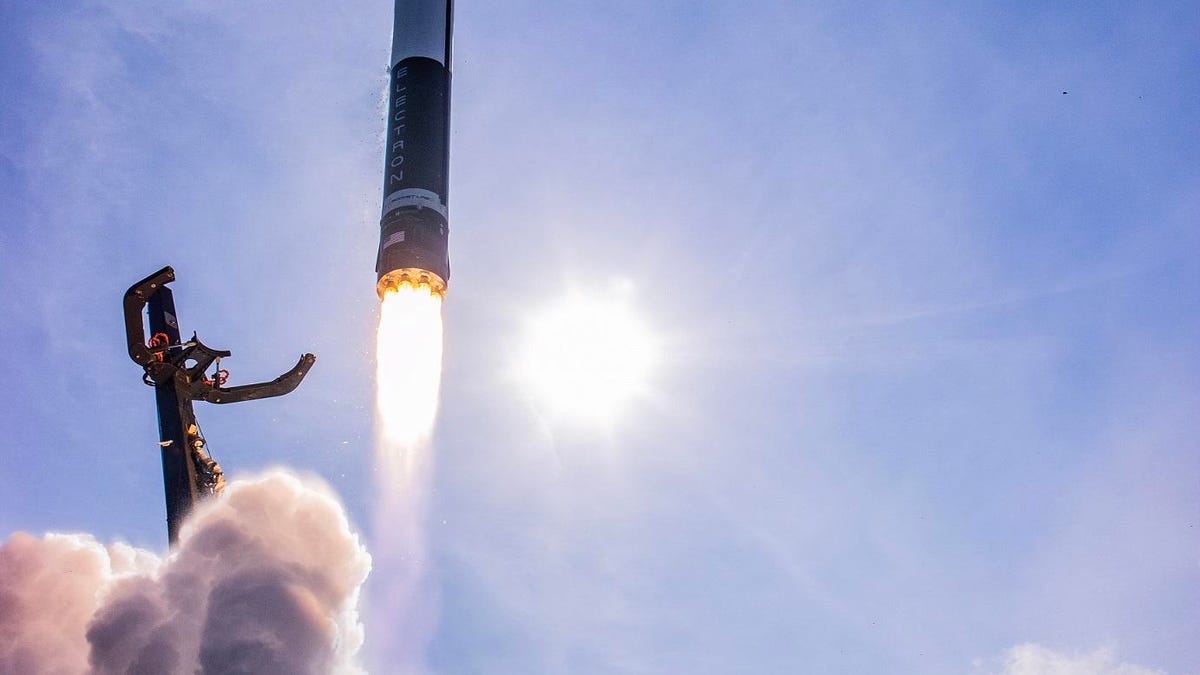Rocket Lab nails first big launch in bid to follow Elon Musk success
After months of delays, the startup space company sends an Electron rocket carrying six satellites into orbit from New Zealand.

Rocket Lab's "It's Business Time" launch of an Electron Rocket Sunday.
There's a new name in commercial space we could hear a lot more in the months to come. California-based Rocket Lab successfully sent six small satellites into orbit aboard one of its Electron rockets from the company's private launch site in New Zealand on Sunday.
Like SpaceX, another California space venture, Rocket Lab aims to be able to launch frequently and on the cheap. Sunday's launch was its first fully commercial mission and the company is shooting for weekly launches by the end of 2020.
Sunday's mission, named "It's Business Time," included satellites belonging to Spire Global, Tyvak Nano-Satellite Systems, Fleet Space Technologies and the Irvine CubeSat Stem Program.
The launch was originally set for April with just four satellites but was delayed multiple times. Two satellites were added to the payload just a few weeks before launch.
On the live webcast of the launch, Rocket Lab touted the last-minute adds to its manifest as an indication of its ability to get to space quickly.
"The world is waking up to the new normal. With the Electron launch vehicle, rapid and reliable access to space is now a reality for small satellites," founder and CEO Peter Beck said in a statement.
The Electron rocket also carried a so-called "drag sail" technology demonstration, which is designed to pull old, inactive satellites down into Earth's atmosphere where they burn up and reduce the amount of space junk in orbit.
Perfect flight. Orbital accuracy was exquisite. Let’s do it all again in a few weeks time!
— Peter Beck (@Peter_J_Beck) November 11, 2018
Rocket Lab's launches don't feature any high-drama landings like we've come to expect from SpaceX and Jeff Bezos-owned Blue Origin. Instead, the Electron's secret sauce comes from its 3D-printed engines, lightweight composite materials and unique battery-powered fuel pumps.
Up next, Rocket Lab plans to launch a payload of 10 cubesats for NASA's ELaNA 19 mission in December, followed by as many as 16 launches in 2019 from its New Zealand facility and a second launch pad under construction at NASA's Wallops Island in Virginia.
NASA turns 60: The space agency has taken humanity farther than anyone else, and it has plans to go further.
CNET's Gift Guide: The best place to find the perfect gift for everyone on your list this season.

